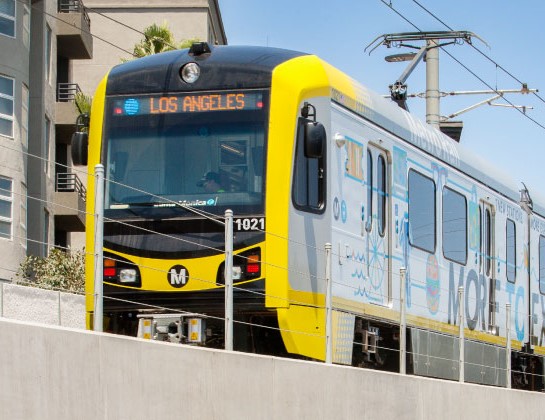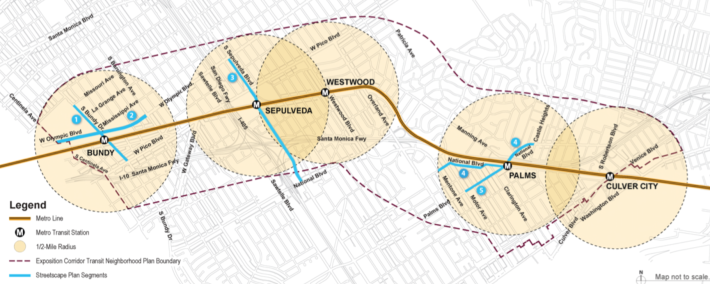In late 2018, Fix the City filed a lawsuit against the city of L.A. implementing its approved plan for some transit oriented development along the E Line. That plan, called the Exposition Corridor Transit Neighborhood Plan (TNP), had already been watered down by self-proclaimed climate champion L.A. City Councilmember Paul Koretz, before its unanimous adoption by the L.A. City Council in July 2018.
Today, City Attorney Mike Feuer announced that the city secured a major victory in favor of the plan. Feuer's announcement emphasized the importance of transit-oriented communities:
“We urgently need more housing and we should put it close to public transit to reduce traffic congestion. This victory is an essential step in dramatically reimagining how Angelenos live, work, shop and play,” said Feuer, who as a member of the California legislature authored the law enabling Measure R, infusing more than $30 billion in public transit improvements in L.A. County, to go to the ballot. “L.A.’s future is closely tied to creating more transit-oriented development as we tackle our housing crisis and L.A.’s crushing traffic congestion.”
Fix the City has a history of filing lawsuits against development and multi-modal transportation - including against L.A. City's Mobility Plan, against L.A.'s Transit-Oriented Communities Affordable Housing Incentives, against developments in Hollywood and Koreatown, and to block updates to L.A.’s Hollywood Community Plan.
Fix the City's TNP lawsuit alleged that the TNP was inconsistent with L.A.'s General Plan because the City failed to ensure adequate infrastructure (by which it meant lots of roads for lots of driving) prior to approving the increased density in the Expo Plan, and that the resulting “soul-crushing worst-in-the-country” traffic congestion would cause deterioration in police and fire response times.
The judge's ruling noted the city plans were consistent, and that there was no evidence of significant impact to emergency response times. The ruling notes that Fix the City argued in favor of using now-discredited Level of Service (LOS) measurements. "Petitioner argued the findings regarding transportation impacts are not supported by the record, as the EIR [Environmental Impact Report] indicated certain intersections were already operating at level E or F, inadequate by the City’s own measure" to which the city responded "that the transportation impact was also measured under vehicle miles traveled (“VMT”), and that the Expo Plan will improve VMT over the no project alternative." The shift from LOS to VMT has been an important upgrade to the way Los Angeles, and now all of California, evaluates project and plan impacts.
The TNP is already in effect, and the ruling allows it to remain so. In L.A. City areas within a half-mile of Bundy, Sepulveda, Westwood, Palms and Culver City stations the plan is already allowing taller buildings, incentives for affordable housing, unbundled parking, and more.







